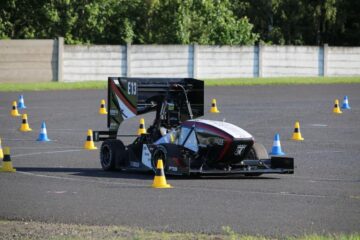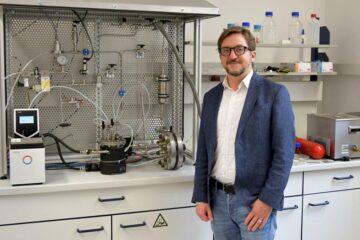ETH Zurich hosts first of kind conference for industry and academia

Anatomy of tomorrow's Internet
ETH Zurich, with the Auto-ID Labs at the University of St. Gallen, and MIT (US), will bring together for the first time leading researchers, visionaries, practitioners and early adaptors from academia and industry to facilitate sharing of applica-tions, research results and knowledge, and to discuss the outreach of the Inter-net to the real world. Dr. Peter Zencke, SAP Executive Board member; Dr. Gerd Wolfram, Managing Director of MGI Metro Group; Dr. Hannu Kauppinen, Chief Research Strategist, Nokia Research; and Professor Haruhisa Ichikawa from the University of Electro-Communications Tokyo, Japan are featured keynote speakers. IOT 2008 especially targets decision-makers and professionals, in addition to the academic community.
What is the 'Internet of Things'? The term has gradually come to refer to the number of technologies and research disciplines that enable the Internet to actually reach into the physical world. „Objects that speak and collaborate together with no human intervention could soon outnumber human users of the web and significantly change the characteristics of the Internet as we now know it,“ says Professor Friedemann Mattern of ETH Zurich's Institute for Pervasive Computing (http://people.inf.ethz.ch/mattern/).
Building bridges
The Internet of Things „bridges the current gap between the real and virtual worlds, and leads to a logical next step in enterprise computing. It bears a major new source of innovation in pretty much every industry, from production to retail, health care, and financial services“, says Professor Elgar Fleisch of ETH Zurich's Management, Technology and Economics Department (http://www.im.ethz.ch/people/efleisch).
Considerate design
Via technologies such as RFID, short-range wireless communications, real-time localization and sensor networks, the Internet of Things has the potential for an unprecedented penetration into our everyday lives. In the not-too-distant future, not only could cyberspace and the physical world be irrevocably linked, but so too scientists, commercial enterprises and individuals. This will result in distinct socio-technical implications for organizations. Its beneficial aspects notwith-standing, the internet of things may prove disruptive to established work practices. The design of interaction between humans and the internet of things must thus be given careful consideration.
Connectivity and beyond
The explosive growth of computing and the Internet continues to yield boundless information. MIT's Sanjay Sarma, Professor of Mechanical Engineering (http://autoid.mit.edu/CS/Bios/Sanjay.aspx) believes that it is time to figure out what to do with this information. Answers will mean changes to the behaviors of individuals and companies. Questions will raise fundamental challenges in dis-ciplines ranging from technology to sociology to interdisciplinary research, and will demand that these along with the „Internet of Things“ be carefully studied for future use.
Further Information
Steve Hinske
Institute for Pervasive Computing
Telephone +41 (0)44 632 07 68
Steve.hinske@inf.ethz.ch
ETH Zurich (Swiss Federal Institute of Technology) has a student body of over thirteen thousand students from 80 nations. Nearly 360 professors teach mainly in engineering sciences and architecture, system-oriented sciences, mathematics and natural sciences, as well as carry out research that is highly valued worldwide. Distinguished by the successes of 21 Nobel laureates, ETH Zurich is committed to providing its students with unparalleled education and outstanding leadership skills.
Media Contact
Weitere Informationen:
http://www.ethz.chAlle Nachrichten aus der Kategorie: Veranstaltungsnachrichten
Neueste Beiträge

Ideen für die Zukunft
TU Berlin präsentiert sich vom 22. bis 26. April 2024 mit neun Projekten auf der Hannover Messe 2024. Die HANNOVER MESSE gilt als die Weltleitmesse der Industrie. Ihr diesjähriger Schwerpunkt…

Peptide auf interstellarem Eis
Dass einfache Peptide auf kosmischen Staubkörnern entstehen können, wurde vom Forschungsteam um Dr. Serge Krasnokutski vom Astrophysikalischen Labor des Max-Planck-Instituts für Astronomie an der Universität Jena bereits gezeigt. Bisher ging…

Wasserstoff-Produktion in der heimischen Garage
Forschungsteam der Frankfurt UAS entwickelt Prototyp für Privathaushalte: Förderzusage vom Land Hessen für 2. Projektphase. Wasserstoff als Energieträger der Zukunft ist nicht frei verfügbar, sondern muss aufwendig hergestellt werden. Das…





















